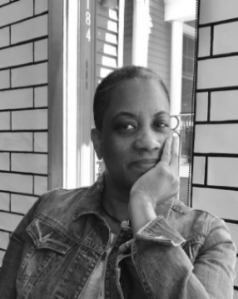|

|
DR. JULIA JORDAN-ZACHERY
FEBRUARY MEMBER OF THE MONTH
University of North Carolina - Charlotte
Department of Africana Studies
Member since 1996
|
WHY DID YOU BECOME A POLITICAL SCIENTIST?
As a little girl growing up in Barbados I was “fascinated” by the reach of the Internal Monetary Fund (IMF). I can remember having intense conversations with my dad on our back porch about the dangers of the IMF. That led me to conclude that I was going to be an Economist.So, I went to graduate school with the intention to research and write about the sugar cane industry in Barbados and how it was used to weaken the Barbados economy. This idea took root when I was about 8 years old. What I did not know is that as a young girl, I was really interested in power and its intersection with identity markers such as race and gender.It was this realization that led me to become a political scientist. And yes, years later I’m still an opponent to the IMF.
WHY DID YOU JOIN APSA AND WHY DO YOU CONTINUE TO STAY INVOLVED?
I joined APSA because it felt like it was something that was expected and to some extent required of me.I joined APSA with some level of skepticism.I was unsure as to whether or not there would be space for me, someone who does not do “traditional” political science and who does not necessarily employ certain types of methodologies. Where would I fit? Would I need to exist in the cracks?These were questions I pondered then and to some extent now. I’m still not convince that I neatly fit into APSA.But here I am.So why am I still here, too many years later for me to count (or willing acknowledge)?It has to do with what happens in the “cracks” of APSA—in those small spaces where recognition occurs.It’s in those spaces where Julia, the Black woman, the human (and less so the political scientist) is recognized that encourages me to stay a member of APSA.It is my desire to offer others that space where we can put our masks down and see each other’s humanity that undergird my willingness to stay and be actively involved in APSA.
WHAT IS THE MOST CHALLENGING ASPECT OF BEING A POLITICAL SCIENTIST? HOW?
At times, the discipline can feel like an anchor, and not necessarily a safe anchor.I feel this in terms of how some question whether or not my research, which is focused primarily on Black women, is actually political science.I want to be able to evolve as a researcher and a teacher, and sometimes this requires me to move in and out of spaces; in and out of the discipline.I need to be fluid in what I do to have it feel authentic and useful.I simply cannot do research for research sake, I need it to be socially-functional and relevant.Trying to do this work, while engaging in a resistance politics to be seen and heard—individually and collectively—is tiring and this is one of the biggest challenges I face as a political scientist.
IF YOU COULD GIVE ONE PIECE OF ADVICE TO SOMEONE IN THEIR GRADUATE/UNDERGRADUATE YEARS, WHAT WOULD IT BE AND WHY?
I wrote my responses in a particular way and intentionally. Whatever I write, I always ground it in my truth. And this is what I try to convey to others. Let your work match your actions. Let your work/words be your truth!
OUTSIDE OF POLITICAL SCIENCE, TELL US SOMETHING INTERESTING ABOUT YOURSELF.
If I were not a political scientist and more importantly
a mother and daughter, I would be a race car driver.
